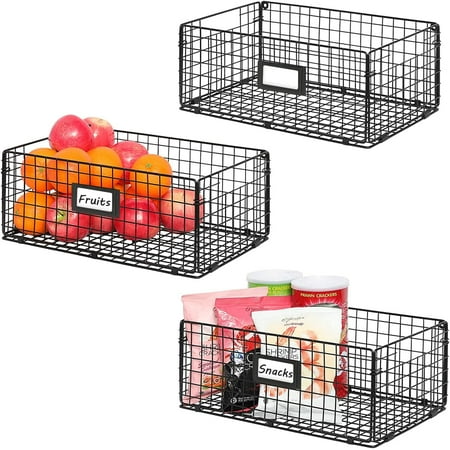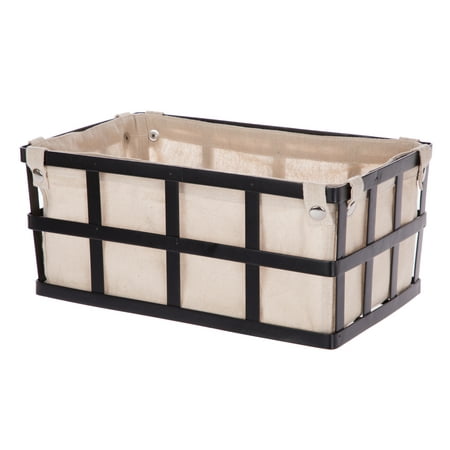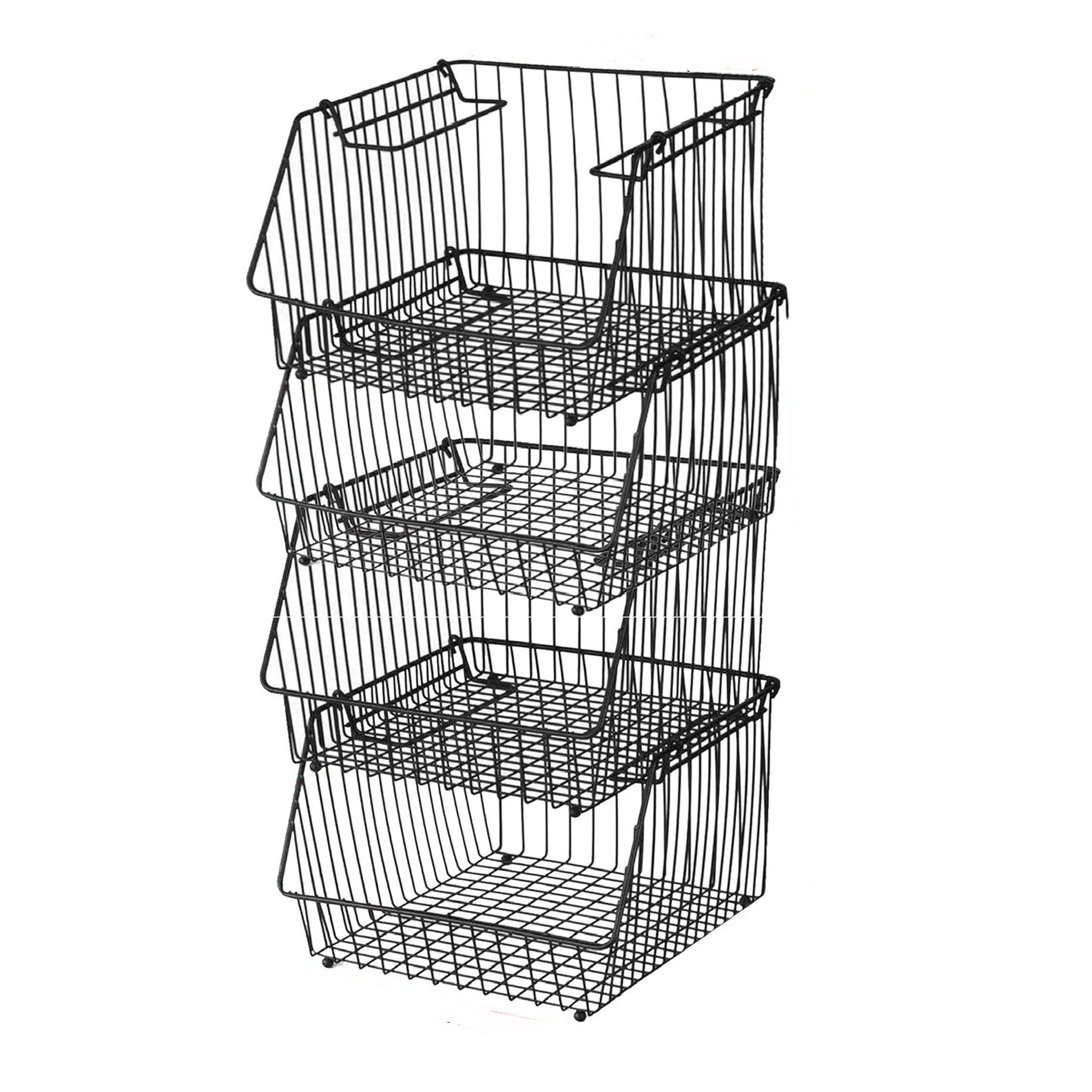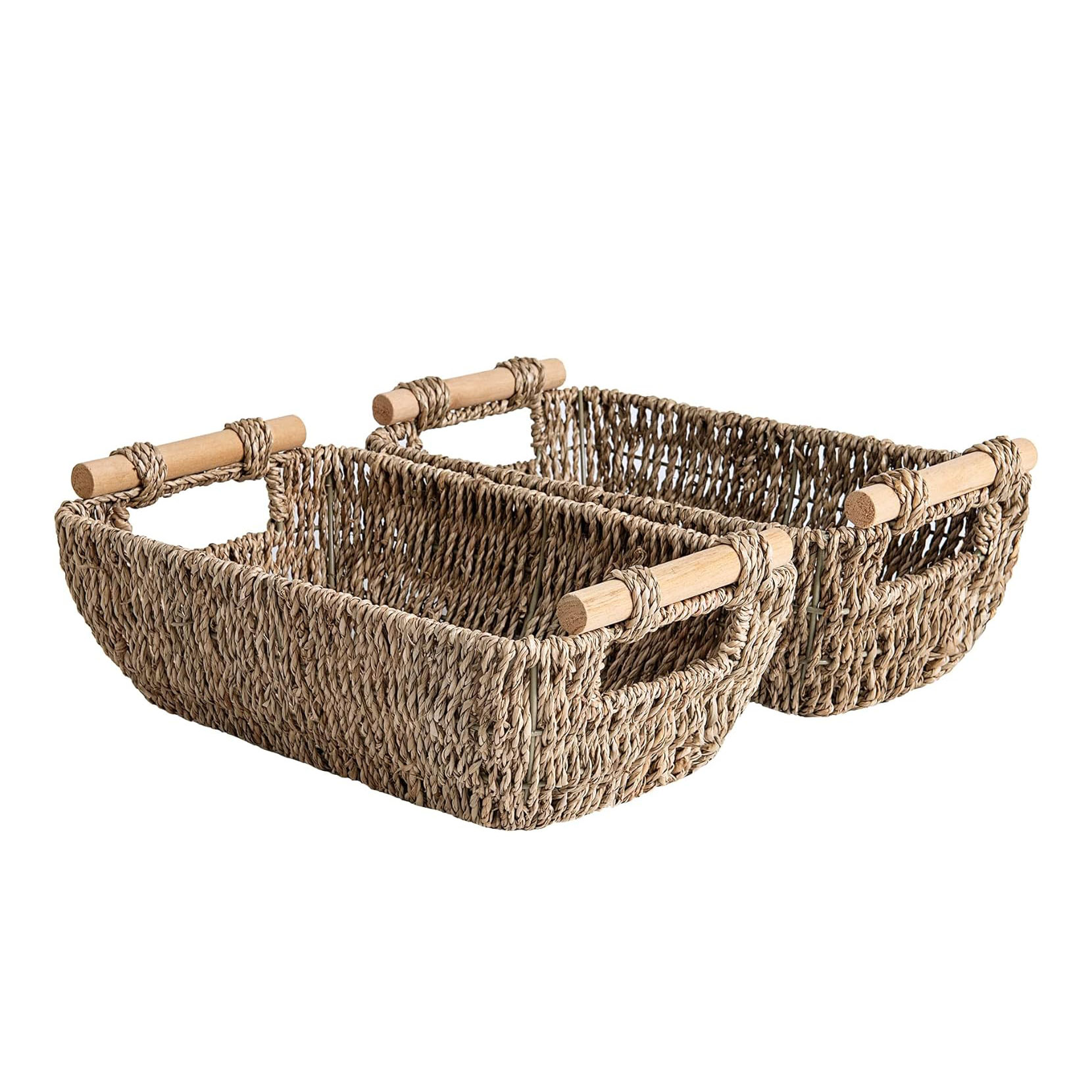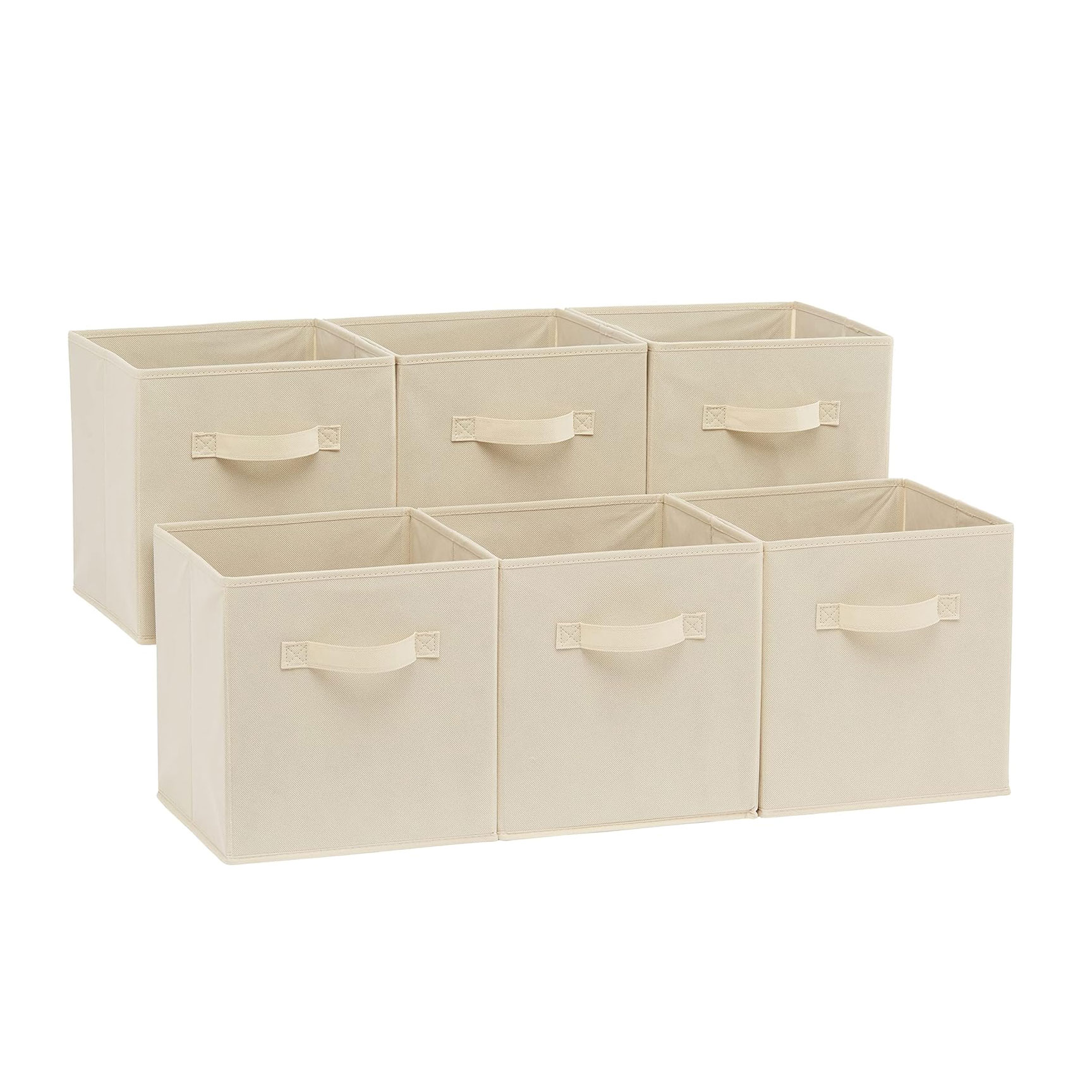5 organizing purchases the pros always regret – and what to buy instead
'Let the situation inform the purchase,' professional organizers urge


There are so many options when shopping for home storage that it can be overwhelming at the best of times. As a result, it is easy to make some shopping mistakes – even for professional organizers.
Add the pressure of social media and the rise of aesthetics over practicality, and it is easy to see how so many of us invest in storage ideas that don’t suit our needs and end up aggravating us more than helping us to stay organized.
It is not just us novices that experience this, however. Even the best of the best have made purchasing decisions they now regret. Luckily, they have revealed the five organizing purchases the pros always regret, and what they buy instead to help you avoid these home-organizing faux pas.
Organizing purchases the pros always regret
Before we start, it is important to note that while the experts might regret one purchase for one space, it doesn't mean that it is impractical everywhere. More often than not, they can be repurposed so that nothing goes to waste. The trick is to declutter and measure first before shopping to avoid picking up storage baskets and bins that don’t work well for your current project.
With that in mind, these are the five main offenders, and how you can avoid making the same blunders as the pros.
1. Storage that is too small or big
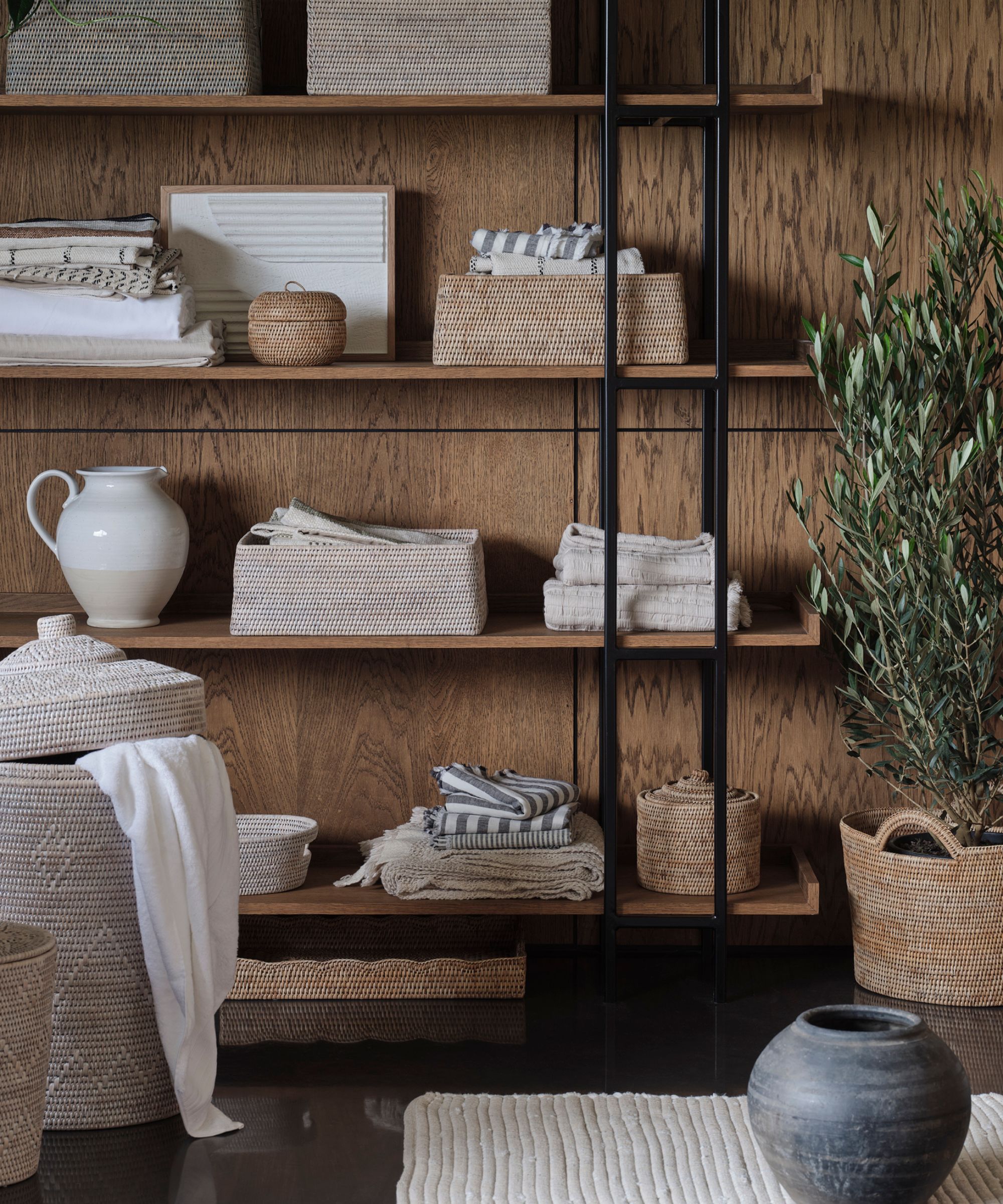
No matter if you are buying independent baskets and bins, or investing in commissioned bespoke joinery, ensuring your storage is the right size for your lifestyle is a must. Going too big or too small is one of the many organizing purchases home organizers always regret, says Lisa Dooley, professional organizer and owner of Your Organized Life:
‘The little bins and baskets are cute but tend to get overfilled and overflow. Although super large bins seem like a good idea – they hold so much, after all – lifting and moving them is challenging and they are bulky to store. The “ideal” bin size is about 66 qt and choose clear bins with latching lids that are stackable,’ she explains.
Design expertise in your inbox – from inspiring decorating ideas and beautiful celebrity homes to practical gardening advice and shopping round-ups.
‘Always wait to purchase storage until after you purge and organize. Purchasing storage options should be one of the last things you do when organizing – which can feel counterintuitive. Let the situation inform the purchase.’
2. Purchasing products that are too shallow
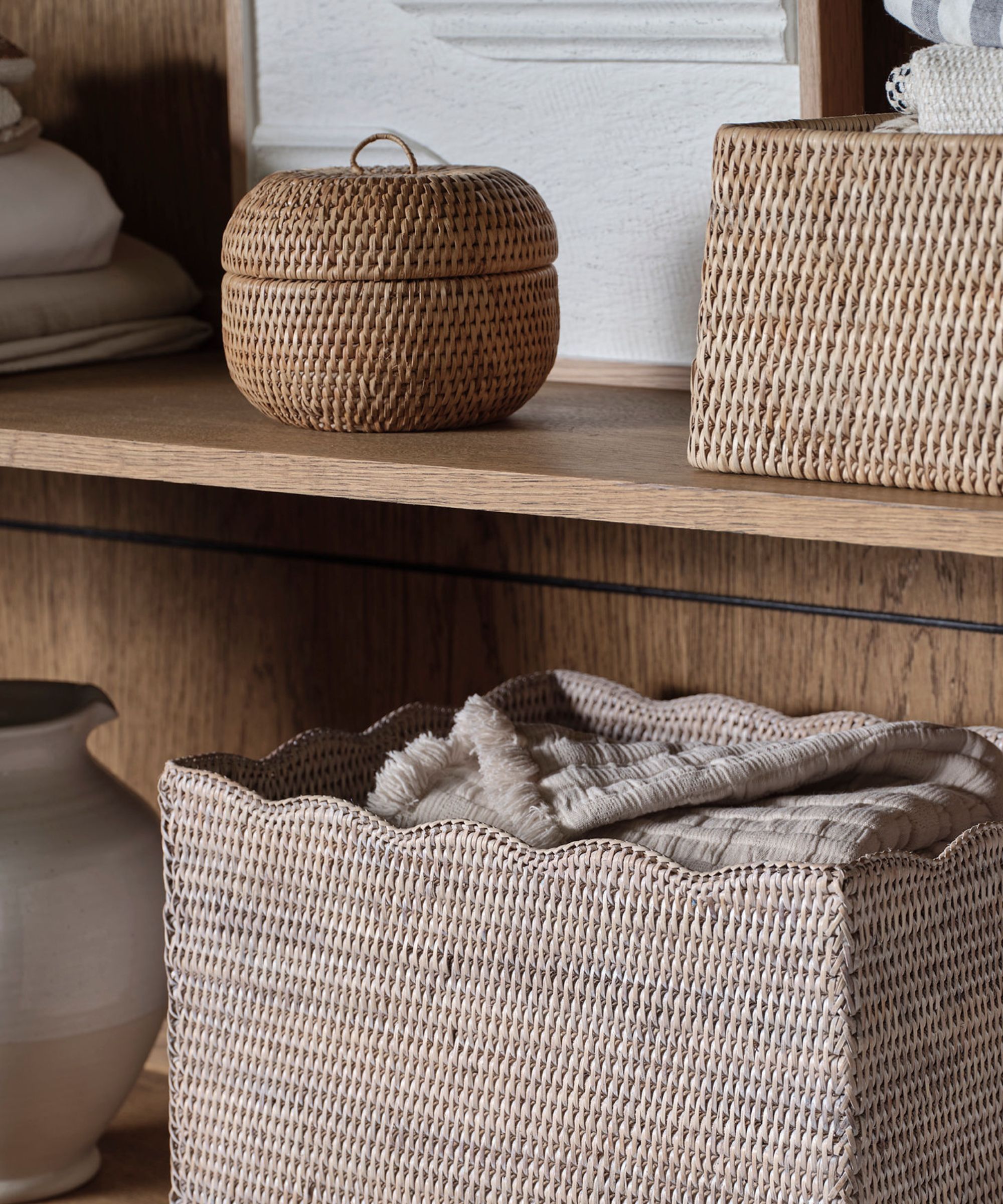
Similarly, storage pieces that are too shallow (no matter their other dimensions) will only result in further clutter and disorganization, warns Katie Clingman, professional home organizer and owner of Settled in Soundly:
‘To maximize your space, make sure you use products that fill the full depth of your shelving,’ she says. ‘For example, if your cabinet shelves are 15" deep, don't settle for containers that are 11" or 13" deep – find ones that are 15" deep to use the full depth of the cabinet. Selecting shallow containers leads to frustration and wasted space.
‘Some of our favorites are the iDesign Deep Drawer bins, available at Amazon,’ she adds.
3. Only plastic organizers
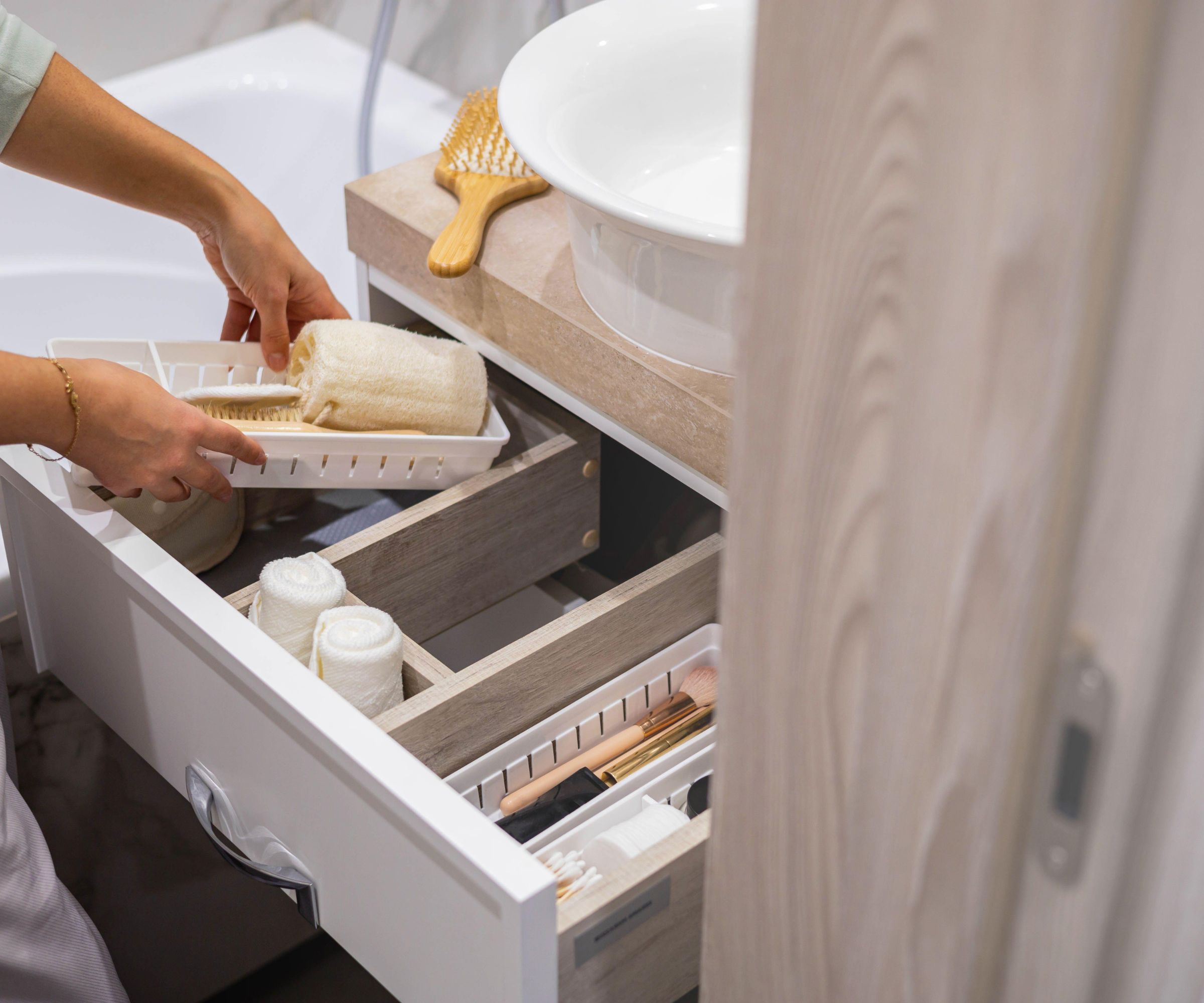
While plastic bins certainly have a place in our homes – especially when organizing a kitchen where they are easy to keep clean and disinfect, it is always a good idea to upgrade and invest in more sturdy metal organizers, suggests Lisa Dooley, professional organizer
‘Spend a little more on metal shelving vs plastic. There are lots of plastic storage shelving options but they can be flimsy. If you want storage bins or larger, bulky items on the shelves, go with metal if possible.’
Picking metal organizers is also a great eco-friendly organizing tip for a more sustainable home making it a win-win for you, your wallet, and the planet.
4. Mixing storage shapes
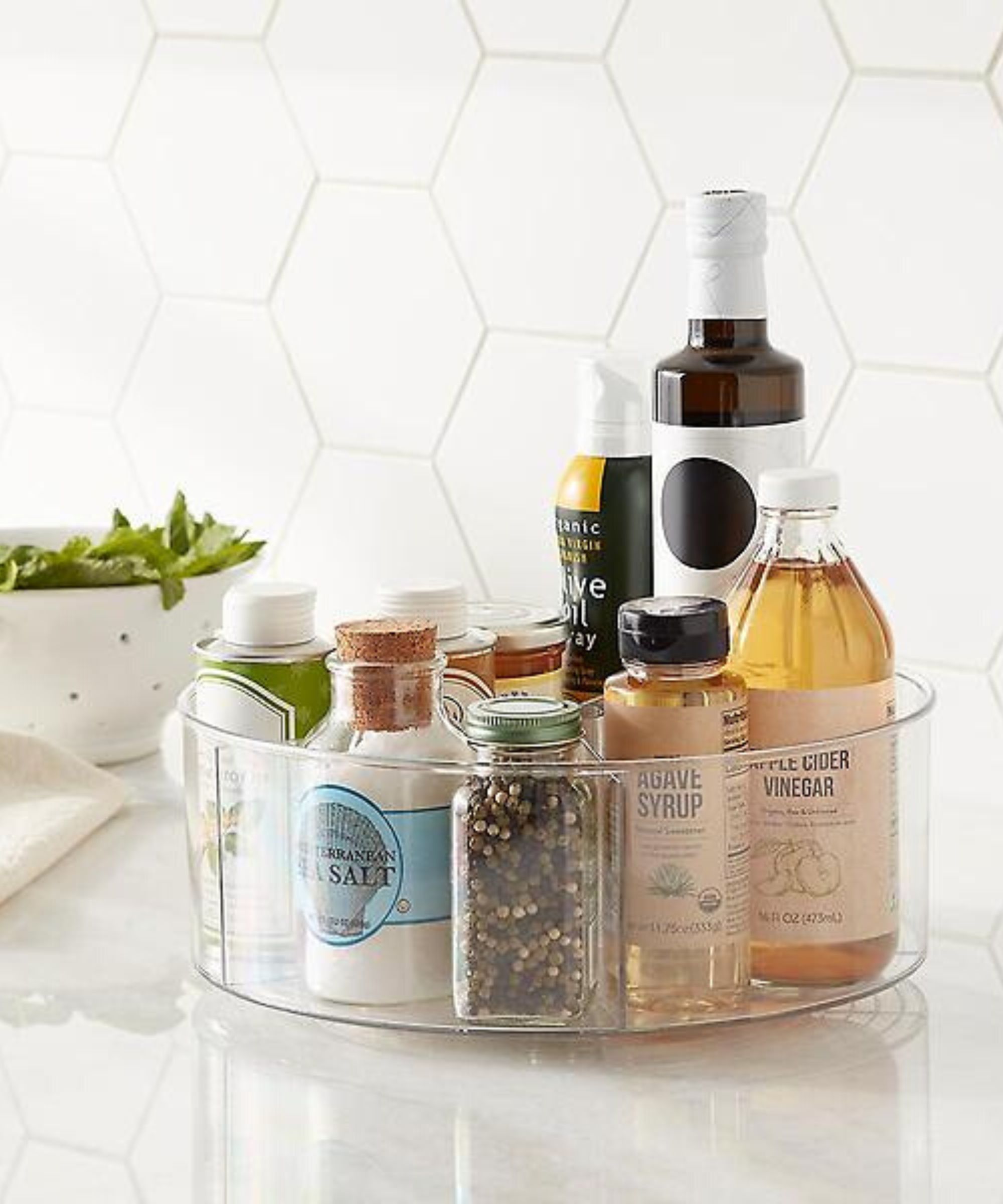
Organizing your home storage is much like playing an eccentric game of Tetris. More often than not, you will want to make the most out of every inch of space you have. A common organizing mistake people make when shopping for organizers is picking differently shaped storage – making this already trick task even harder, says Francesca Verri, holistic lifestyle and minimalist coach and life architect. It always results in regret, she warns:
‘Another organizing supply purchase that tends to lead to regret is buying round containers for cabinet storage. When you do this you are trying to build a system by matching unlike shapes and the result is a loss of space in the cabinet. That loss of space creates frustration, opens the door for clutter, and prevents organizational ease.
‘Instead of round containers, I suggest you choose a shape that matches the space in which you are looking to build the system. For square or rectangular cabinet storage choose square or rectangular containers that are clear, so you can easily see how much you have, and can be stacked to maximize your space.’
5. Purchasing the incorrect opacity
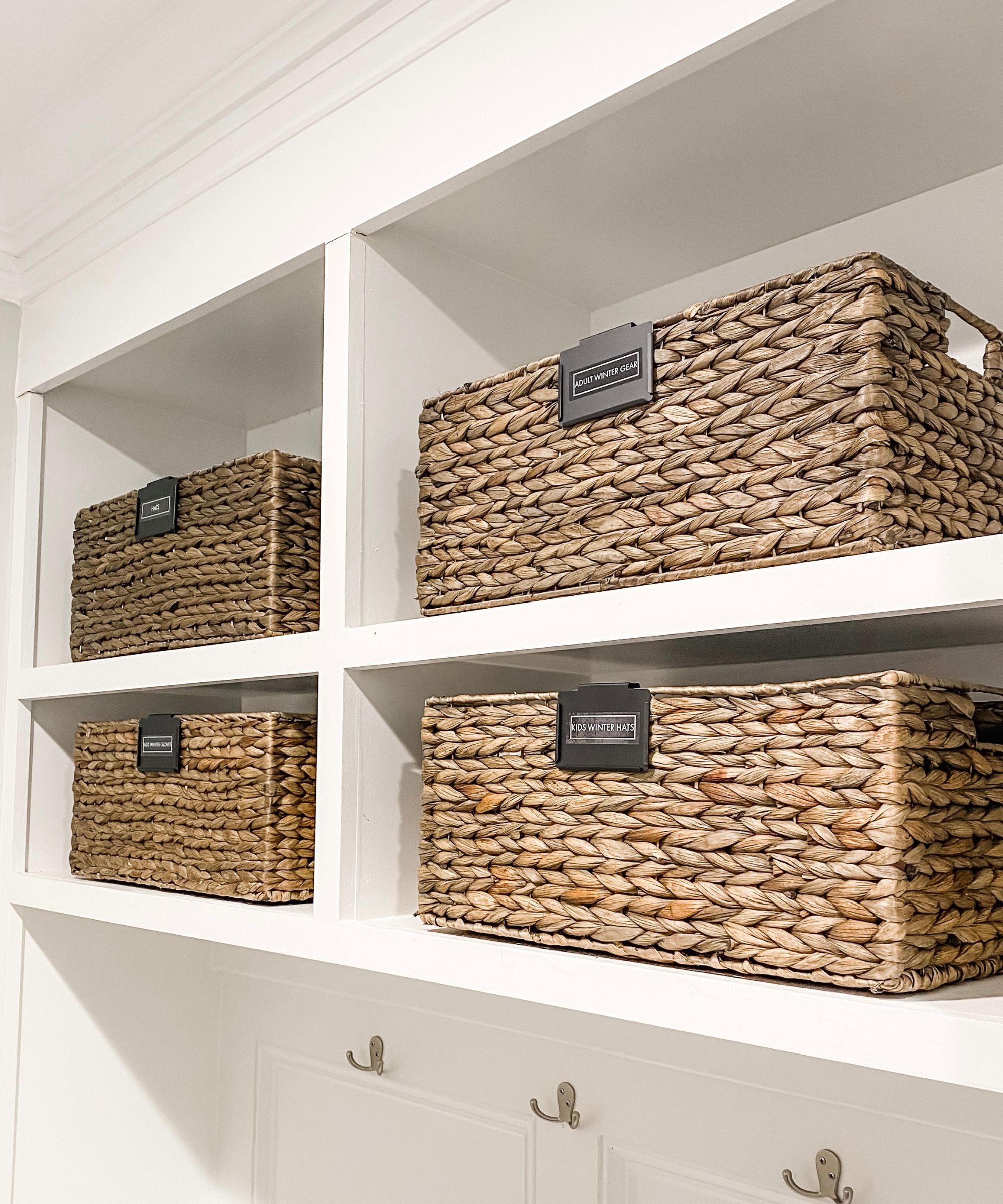
How your storage containers look is not just important for the aesthetics of your space. While bamboo dividers or cute fabric storage baskets may make your home look Pinterest-perfect, they might not always be the most practical. This is a purchasing regret Katie Clingman, a professional home organizer, learned the hard way:
‘Many organizing products come in solid, translucent, and transparent options. If you like being able to see what's inside a container, choose clear ones. If seeing everything is overwhelming for you, choose solid containers (and add labels!) to reduce your stress.
‘Neither option is wrong; it's just important to make sure you match your personal preference with the corresponding container type,’ she shares.
FAQs
How to deal with regret purchases?
If you have bought something you soon regret, there are a few options. If possible, you can return the item for a refund where it can be sold on to someone else to mitigate waste. If you cannot return the item, try repurposing it either around your home or by giving it away to friends or family. Alternatively, you can try to sell it yourself but expect a small monetary loss.
In the future, create a budget and stick to a shopping list when you leave the house to ensure you stick to the essentials and avoid impulse shopping.
It is one thing avoiding decluttering regret, but a whole other to avoid shopping regret. Being mindful when shopping for storage pieces, measuring twice before you buy, and decluttering before you consider organizing is the best way to avoid wasting money on storage pieces that don’t work for you, resulting in a more practical home, and a fuller wallet.

Chiana has been at Homes & Gardens for two years and is our resident 'queen' of non-toxic living. She spends most of her time producing content for the Solved section of the website, helping readers get the most out of their homes through clever decluttering, cleaning, and tidying tips. She was named one of Fixr's top home improvement journalists in 2024.
